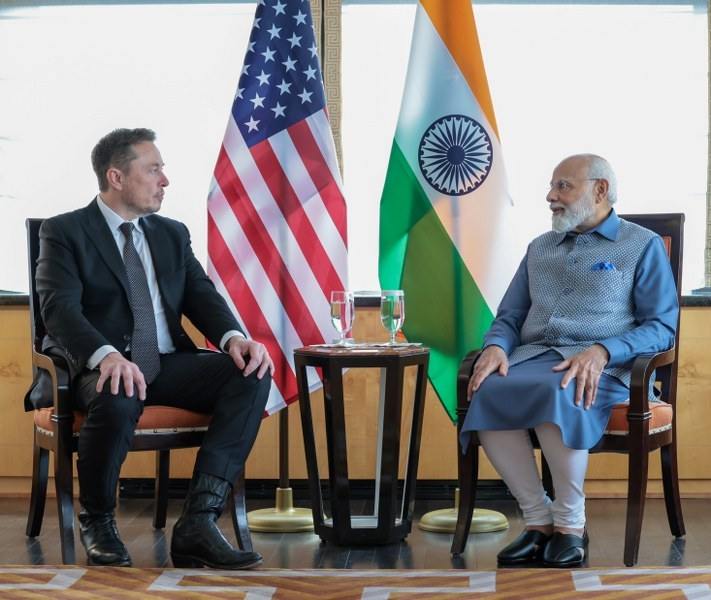Challenges to overcome for implementation
[ad_1]
Tesla’s ambition to expand into India marks a potential turning point for the country’s auto industry, but it comes with complex challenges and negotiations. Tesla, led by visionary Elon Musk, has expressed its willingness to invest heavily in India’s electric vehicle (EV) sector, offering up to $2 billion to build a manufacturing plant. This ambitious initiative is, however, conditional on significant adjustments to import duties currently imposed by the Indian government.
A Tesla showroom in India for 2024
According to Reuters, Tesla is currently looking to open a new Showroom in India. This announcement is made in the context of negotiations with the Indian government for the establishment of a Gigafactory in India.
Tesla is grappling with slowing electric vehicle growth in its two main markets, the United States and China. Reuters reported this month that Tesla canceled a long-promised low-cost car that investors were counting on to drive mass-market growth.
Demand for electric cars in India, the world’s third-largest auto market, is expected to grow rapidly. EVs accounted for just 2% of total car sales in India in 2023, but the government has said it wants 30% of all new car sales to be electric from 2030.
Tesla’s Proposal
On November 24, 2023, the Economic Times revealed that Tesla was willing to make an initial investment of up to $500 million, provided the Indian government agreed to reduce import duties on its vehicles to 15%. for the first two years. The investment could amount to $2 billion if the agreement includes a concession on 30,000 vehicles. This proposal highlights Tesla’s strategy to facilitate access to the Indian market for its EVs, while boosting local production.
Regulatory Context and Negotiations
Tesla’s initiative comes against a backdrop where India is considering a reform of its electric vehicle policy. The government is working on a proposal to lower import taxes to 15%, from the 100% currently imposed on vehicles over $40,000 and 70% for others. This policy aims to encourage foreign investment in the EV sector and promote sustainable local production.
However, the report of theEconomic Times points out that the Indian government is evaluating the feasibility of Tesla’s proposal, with a preference to reduce the number of imported vehicles benefiting from reduced import duties, compared to what the company is proposing. This position reflects the government’s desire to protect the interests of local automakers while attracting foreign investment.
Implications for the Indian Market
Tesla’s potential entry into India represents a significant opportunity for the EV market in the country. A favorable agreement could not only accelerate the adoption of EVs but also stimulate innovation and local production in this sector. However, negotiations between Tesla and the Indian government highlight the challenges of aligning economic and environmental goals with local industrial interests.
Conclusion
Tesla’s proposed investment in India is a promising development for the future of electric vehicles in the country. However, the outcome of these negotiations will depend on the ability of both parties to find a compromise that promotes innovation while supporting the development of the local automotive industry. The final decision will have significant implications for the future direction of the EV market in India, highlighting the importance of a balanced strategy between openness to foreign investment and promotion of a robust local industry.
[ad_2]
Source link
